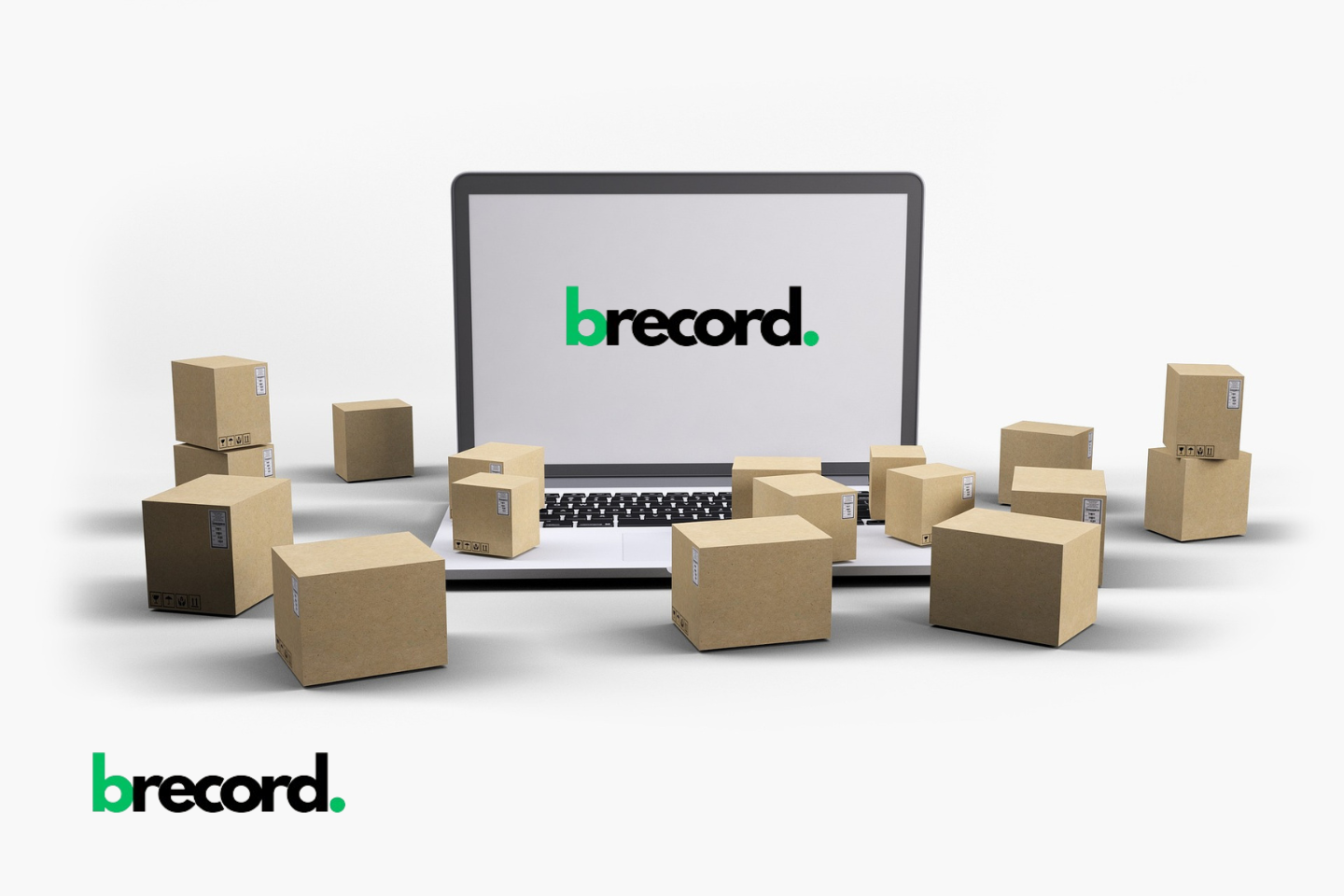There are exhilarating opportunities and daunting challenges for small business owners in today’s digital marketplace. They can boost their brand, get access to more clients, and achieve efficiency that was never seen before with the right online platform. Whether you are just starting out or expanding your already established venture, finding the right online shop is of utmost importance. So where do you start? Worry no more! In this blog post, we will explore some of the most exquisite online shops dedicated specifically to small business owners—packed with features that encourage innovation at low cost. Let us take a look at a world of possibilities towards realizing your entrepreneurial dreams!
Benefits of using these online shops for small businesses
There are many advantages brought by web stores targeting small business owners. Foremost, it should be noted how businesses are easier to access. Entrepreneurs can visit them, and therefore, do the shopping at any time, any place, thus making finding the right products more convenient than when adhering to opening hours of the retail shops.
Cost efficiency stands out as another key factor. Despite the known fact that there are many existing costs, many online platforms sell their products in discounted rates and in bulk which assists small businesses to acquire the core materials economically. These savings can then be re-used in other parts of your business.
Moreover, these platforms usually come with easy-to-use graphics and quick search options, which is efficient to the user. Small business owners can search for a particular item or a number of brands in a few clicks.
Lastly, there is also the aspect of ordering the products online to avoid complex logistics. Such inventories when delivered at one’s premises will help push business forward rather than trying to manage supply chains.
Factors to Consider When Choosing an Online Shop for Your Business
The right choice is crucial when selecting an internet shop for your company. Start by determining who your target customers are. Find out where they prefer shopping and which sites resonate with them most.
Also think about simplicity in functionality matters too. User friendly interface saves time whereas enhancing customer experience. Platforms that have intuitive navigation and streamlined checkout process should be given priority.
Pricing structures also matter. Some platforms have listing fees or take a percentage of sales whereas others require monthly subscriptions. Look at what aligns with your budget.
Do not forget about customization opportunities as well. Hence, the platform should allow for custom designs and features that represent the brand identity.
Finally, evaluate how much help each online shop offers its clients. Good customer care goes a long way when tackling problems or seeking clarifications.
Top Online Shops for Small Business Owners Including:
Amazon Business is specifically made for small businesses. It allows one to buy in bulk and access unique discounts. This is ideal for those who are looking to stock inventory or find basic supplies they need.
Etsy therefore emerges as the best place to sell and shop handmade or vintage items. As such, small business owners can exhibit their own creativity and reach out to like minds in the community that love unique products. Artisans will love it because it connects them with buyers who value originality.
Shopify is an all-in-one solution for anyone operating an online store. With customizable templates and integrated payment systems, launching your shop is a walk in the park. It’s designed to grow with businesses of all sizes.
Selling new or secondhand goods using eBay allows you to target a bigger audience. The auction format can aid you in setting competitive prices based on market demand
WooCommerce is a plug-in on WordPress, which is an open-source. Hence, you can have a functional e-commerce website without the need for any technical know-how.
-Amazon Business
It’s designed specifically for the needs of small business owners. It works across industries by simplifying procurement processes and offering millions of products to choose from.
One extraordinary thing is the ability to create multiuser accounts. This allows members of teams to collectively manage purchases while they keep track of spending limits and order history.
The platform offers purchasing in bulk that can save money on frequent orders. Small enterprises benefit from tailored discounts helping them stretch their budgets further.
In addition, Amazon has dependable shipping so that inventory arrives fast. Prime membership provides faster delivery options as well.
All in all, Amazon Business combines convenience with a wide variety of products and special features made for small businesses seeking efficiency in their procurement process.
-ETSY
Etsy is like no other online market place for craftspeople and artists where they can showcase their goods. It serves as such a dedicated marketplace for handmade, vintage and hard-to-find items thus making it popular among small entrepreneurs who sell similar things directly themselves; this approach enables buyers who appreciate craftworks to interact with sellers at personal level thereby enhancing greater individualism.
The set-up process for an Etsy shop is very simple; even someone new to e-commerce will be able to use it. For this reason, there are various tools available on this site aimed at helping users list their merchandise much easier than ever before while also keeping track of what’s in stock or how payments are processed?
Also, many purchasers at Etsy come not only with shopping intentions but interest towards stories behind each product sold here and there. Therefore, small business owners may discuss their creative development or inspirations via detailed information pages or shop updates.
Furthermore, Etsy has built-in marketing capabilities that help drive up listings effectively through ads within its platform. In this case, sellers do not have to know how to advertise, or have a lot of money for advertising in order to use this service.
-Shopify
Small business owners looking to start selling goods online prefer Shopify. With its user-friendly interface, this platform simplifies the process of launching and managing an eCommerce store.
Users can build their own branded unique storefronts using various pre-designed templates that are customizable. Besides that, it supports many different payment gateways which make transactions smooth and secure.
Additionally, its robust app marketplace allows entrepreneurs to easily add functionality. Whether you need marketing tools or inventory management solutions, there is something here for everyone’s needs.
Entrepreneurs find this helpful during crucial moments due to the fact that it offers them assistance at any time as it runs throughout 24hours a day.
Lastly, the stores include SEO features which allow users to optimize their shops effectively; thus driving more organic traffic and increasing visibility on search engines critical for developing businesses.
-eBay
eBay is a versatile platform that suits small business owners best. The auction-style listings on the website offer opportunities to sell products at competitive prices. Sellers design store fronts according to their niche markets.
What distinguishes eBay from other marketplaces is its worldwide reach. Companies are able to connect with buyers globally by having access to customers from all over the world thereby making it easier for them reach out more people and increase sales significantly.
The eBay seller tools provide easy navigation pane so as you monitor your inventory levels and review performance metrics. This way you are able to adjust pricing strategies based on real-time feedback from your audience easily.
Besides, eBay offers different promotional options such as price cuts and advertising placements that enhance product visibility. This marketplace has abundant resources and support for businesses scaling up in a noisy digital environment.
WooCommerce
WooCommerce is a powerful plugin for WordPress that turns an ordinary site into an online store. It’s perfect for small business owners who want to keep control of their brand image and customer experience.
With its wide-ranging customization possibilities, businesses can adjust their stores accordingly. From product variations to shipping methods, many people prefer WooCommerce due to its flexibility.
Another advantage is the range of extensions available within it. These tools help improve functionality from payment gateways to inventory management systems.
Furthermore, there is a strong backing community with WooCommerce. This means there are many resources and support available if you need assistance or inspiration.
It also has an attractive cost structure; however, while there are no upfront charges for the plugin itself, certain features may require further investments. Thus it becomes accessible yet scalable as your business grows.
Comparison of features and pricing for each online shop
Features and pricing play crucial roles when comparing top online shops for small business owners.
Amazon Business offers bulk purchasing in a large marketplace. The pricing depends on individual seller agreements but often includes competitive rates for prime members.
Etsy focuses on handmade items which makes it ideal for artisans. Listing fees are negligible while transaction costs generally stay around 5%. It serves specific markets best.
Shopify provides an all-inclusive e-commerce solution. Starting at $29 per month these plans come with customizable templates integrated payment processing. Those wanting full control over their store will find this appealing.
eBay supports auction style sales as well as fixed price listings. Depending on the type of listing, fees differ making it flexible albeit potentially complex in cost structures.
WooCommerce stands out because it’s open-source; meaning extensive customizations can be done without any upfront costs; nonetheless, users should be aware of hosting expenses which can rise quickly.
Success stories from small business owners using these online shops
The right platforms bring small business owners success. Online stores have seen many wishes come true for entrepreneurs.
There is Sarah who creates handmade jewelry. By creating an Etsy shop, she reached customers beyond her local area. Influencers noticed her unique designs and this translated into a considerable increase in sales and brand recognition.
Another case is Carlos who started off by selling gadgets on Amazon Business, being a technology enthusiast. His venture’s logistics were streamlined while its access to millions of buyers meant that it went from being a side project to becoming his full-time job within months.
Lastly, there’s Lisa who turned her passion for cooking into success via Shopify. Her products were beautifully displayed on an eye-catching website that she had built herself. Alongside the online store, social media marketing has been used as a method to grow loyalty towards her bakery brand with each new batch of goodies launched weekly.
These anecdotes demonstrate how simply choosing the right platform could lead to tremendous growth opportunities for small enterprises everywhere.
Tips for maximizing sales on your chosen online shop
To maximize sales on your selected e-commerce site, you should start by optimizing your product listings. Display your products in high-quality pictures from different angles. Producing an excellent description certainly contributes to transforming views into purchases!
Engage clients through using social media platforms. Make a point of posting about new stocks or special deals. This can create a following which in turn attracts traffic to your online store.
The idea of introducing short term sales offers or specials could be used to stimulate impulse buying. Some shoppers will act on scarcity.
Make proper use of customer feedback and reviews as they enhance the credibility and trustworthiness for potential buyers who visit your site. Make sure that happy customers leave positive reviews immediately after purchase.
Lastly, invest time in understanding analytics provided by the platform you choose. The insights you gain help you find strategies that work best for you’re your audience’s tastes and preferences.
Additional resources and tools for small business owners selling online
For small business owners entering into online trading, having the right resources can make all the difference. There are different tools that streamline processes and improve customer interaction.
Consider using email marketing platforms like Mailchimp or Constant Contact. By offering such services, one is able to get in touch with clients and advertise their products effectively.
Social media management tools such as Hootsuite or Buffer allow efficient content scheduling across multiple channels. Creating a strong online presence nowadays is vital for any entrepreneur.
Inventory management software examples include TradeGecko or QuickBooks assist in tracking stock levels as well as orders thus avoiding over-selling.
Moreover, using analytics tools like Google Analytics provides information into consumer behavior. The knowledge of what drives traffic to your store is valuable while coming up with marketing strategies.
Finally, check out communities on Reddit or Facebook groups where other entrepreneurs share tips and tricks. Networking may offer encouragement plus innovative ideas how to expand an enterprise on web space.
Conclusion
For small businesses looking to remain competitive in an increasingly crowded market, finding the correct web-based storefront is imperative. Different types of products and services suit various platforms best; each has its own merits too. The decision you take will greatly influence the level of your sales, customer experience and overall brand presence.
When deciding between Amazon Business, Etsy, Shopify, eBay or WooCommerce consider ease of use, fees charged when selling on this platform as well as target audience reach and available features. Small businesses that can take advantage of a platform’s strengths while supplying products to meet consumer needs often achieve outstanding outcomes.
Listening to success stories from fellow entrepreneurs can provide valuable insights into what works best for various niches. Besides, by having smart strategies in place you will ensure that you maximize your potential on any chosen platform—be it optimizing product descriptions or using social media marketing.
Endeavor to select an online store that suits all your needs and at the same time boosts your visibility and engagement with customers. This is one decision that will determine how effectively you are able connect to audiences growing your business with time.
Check out our blog for more interesting reads.



